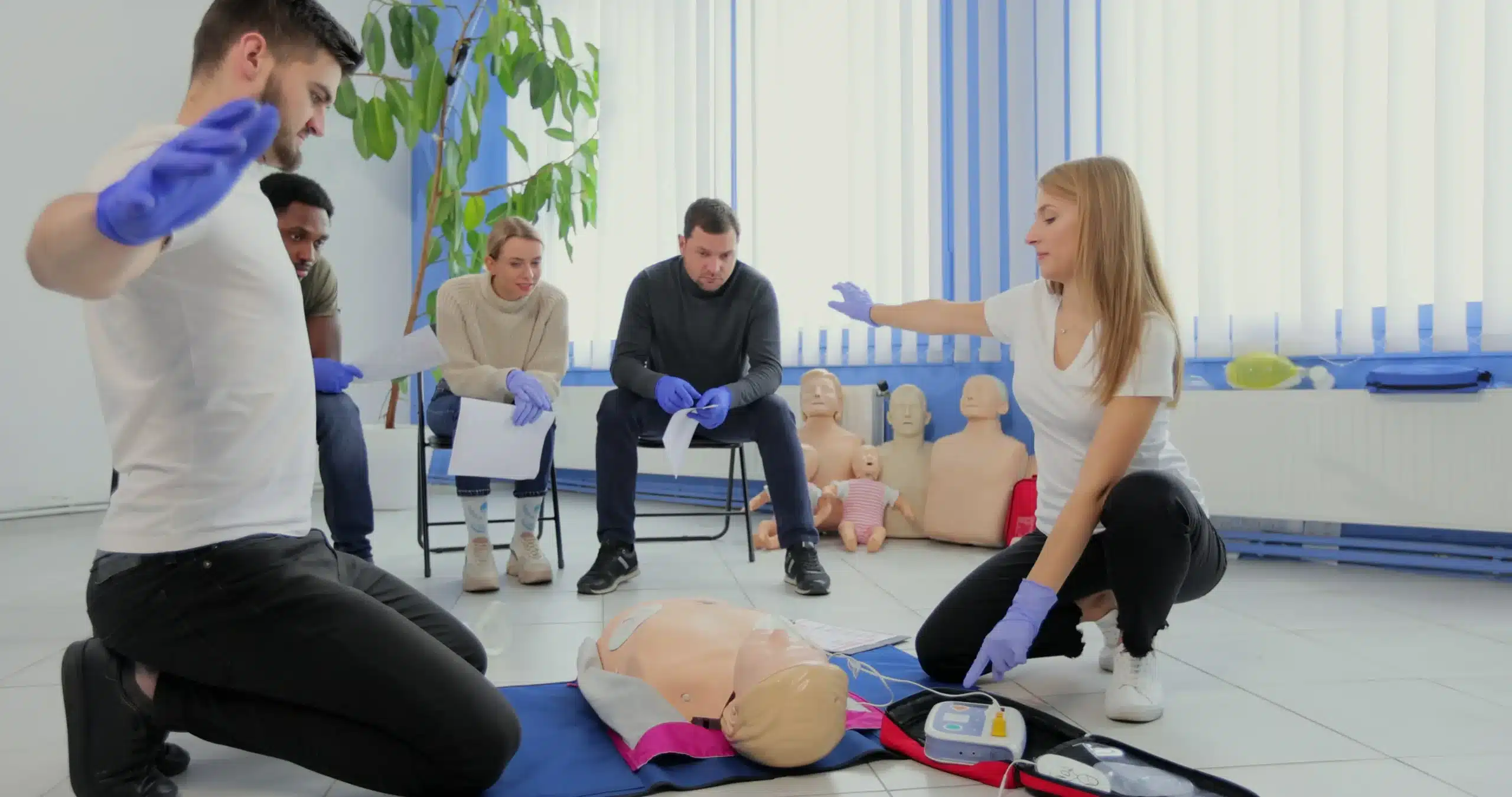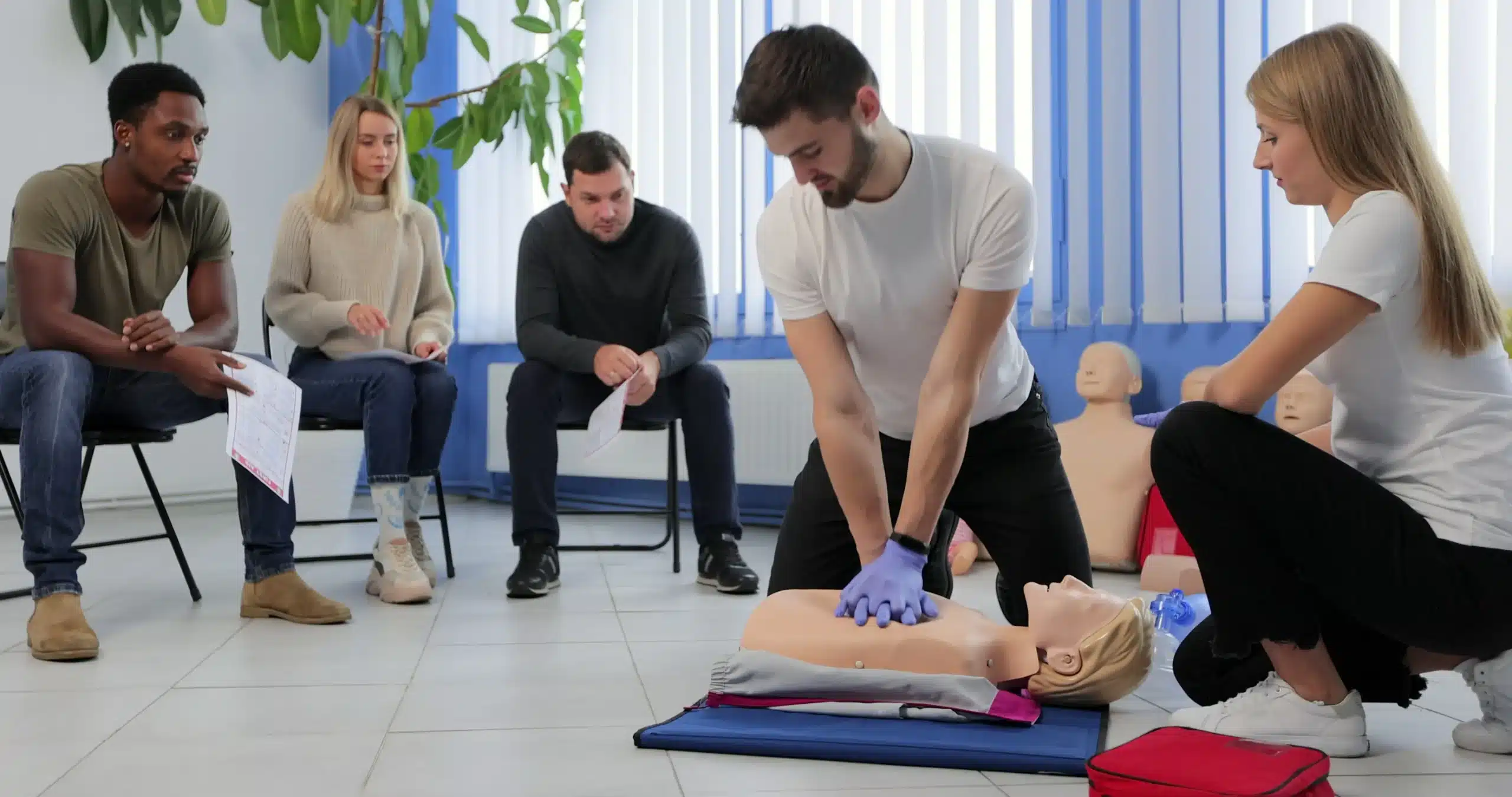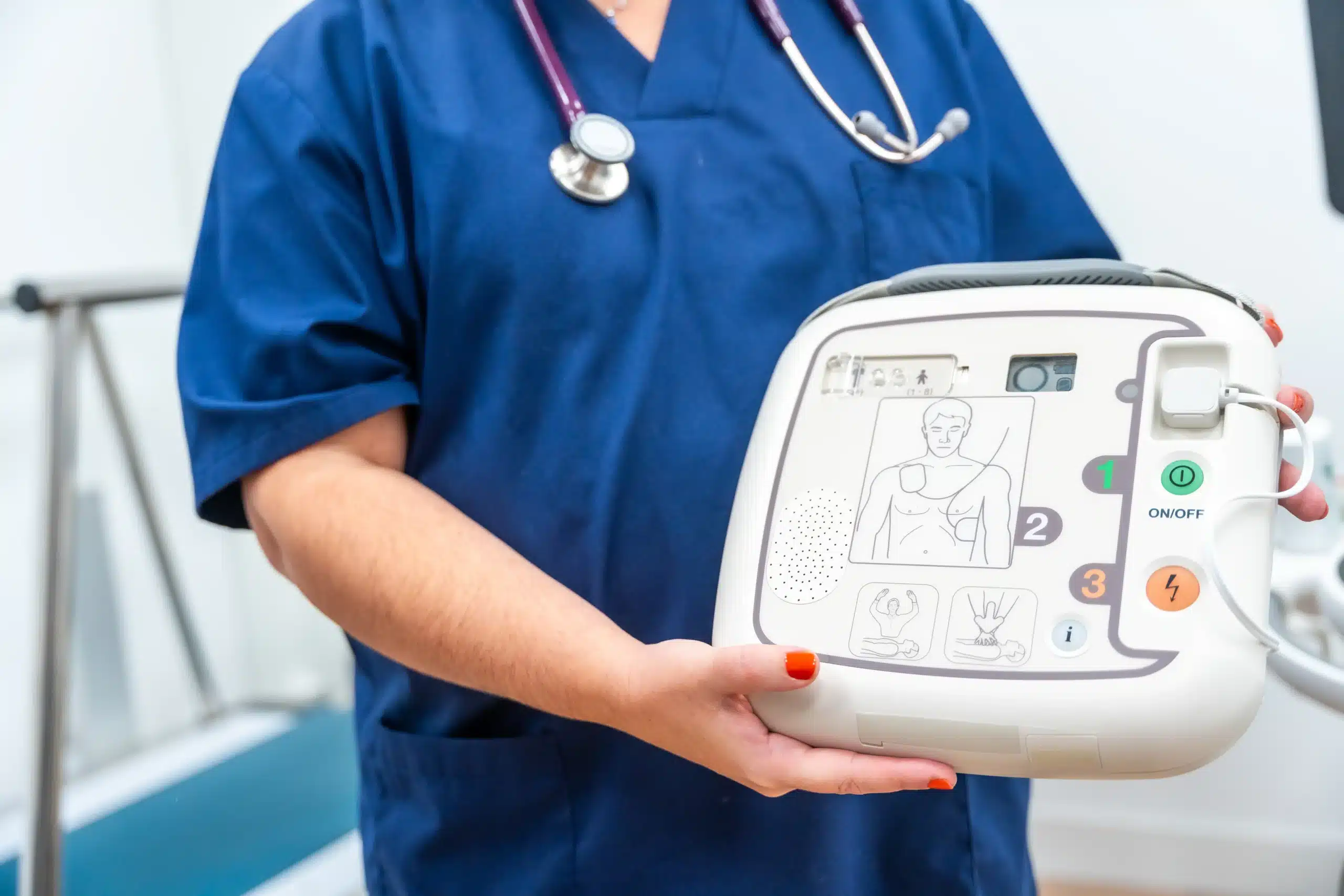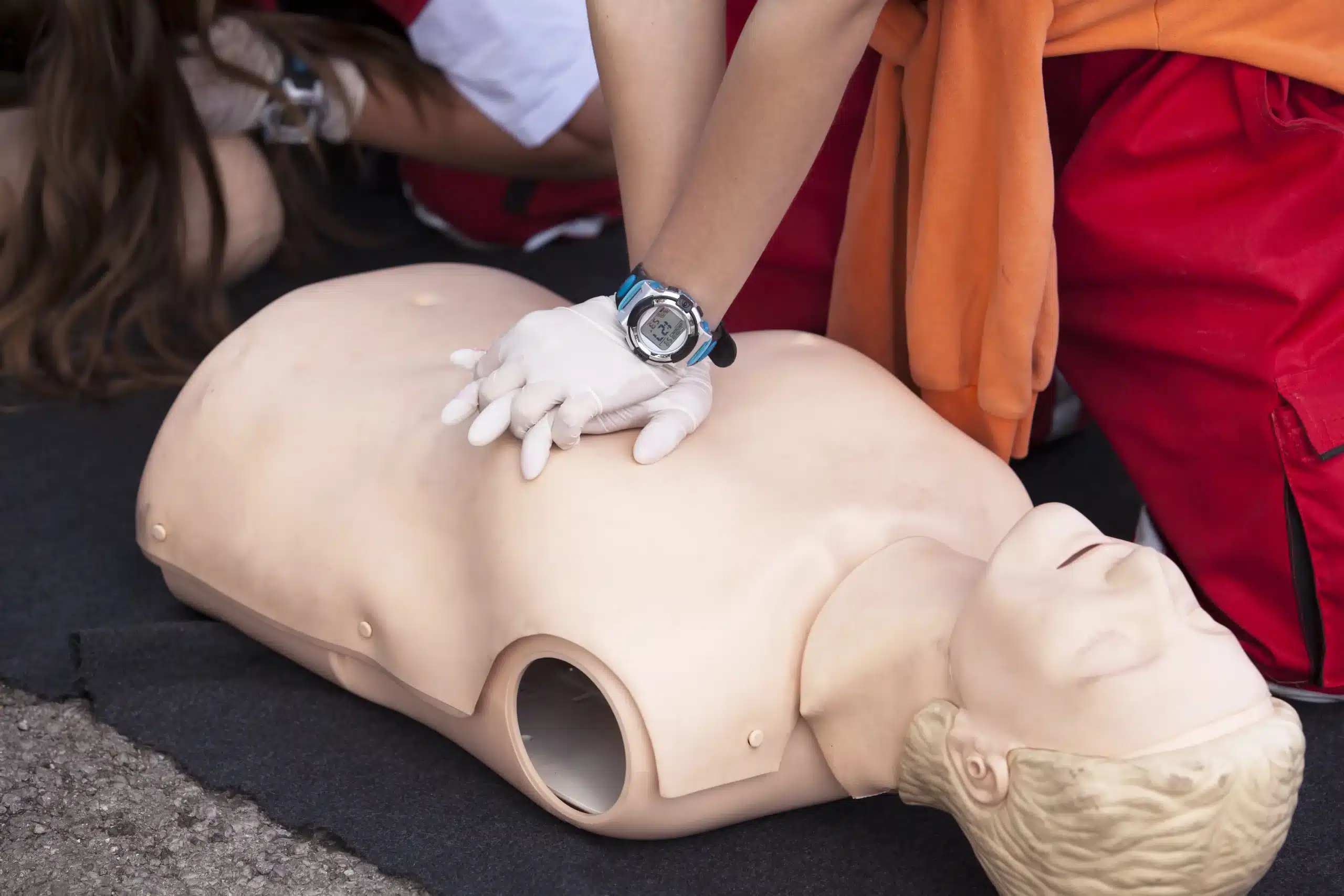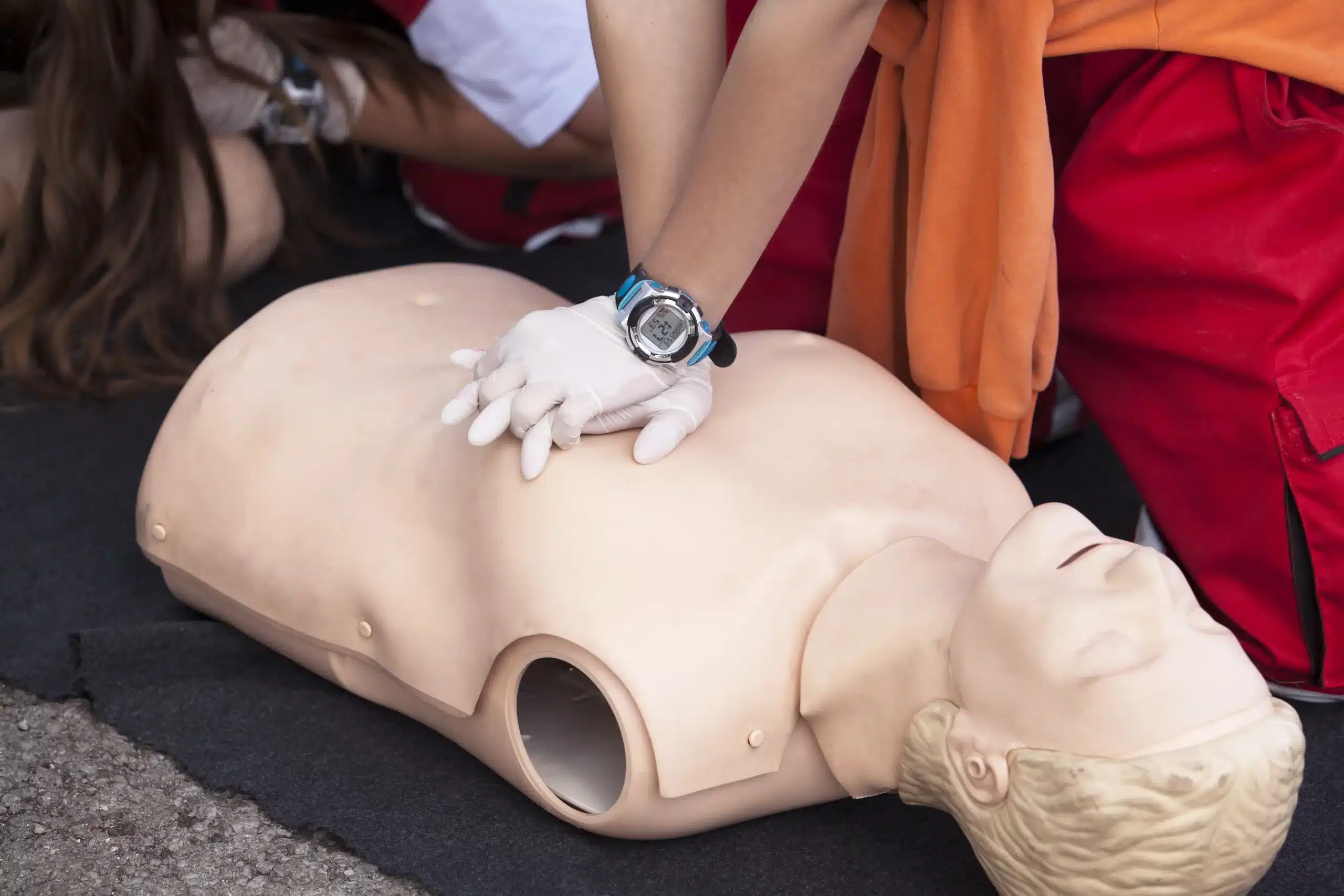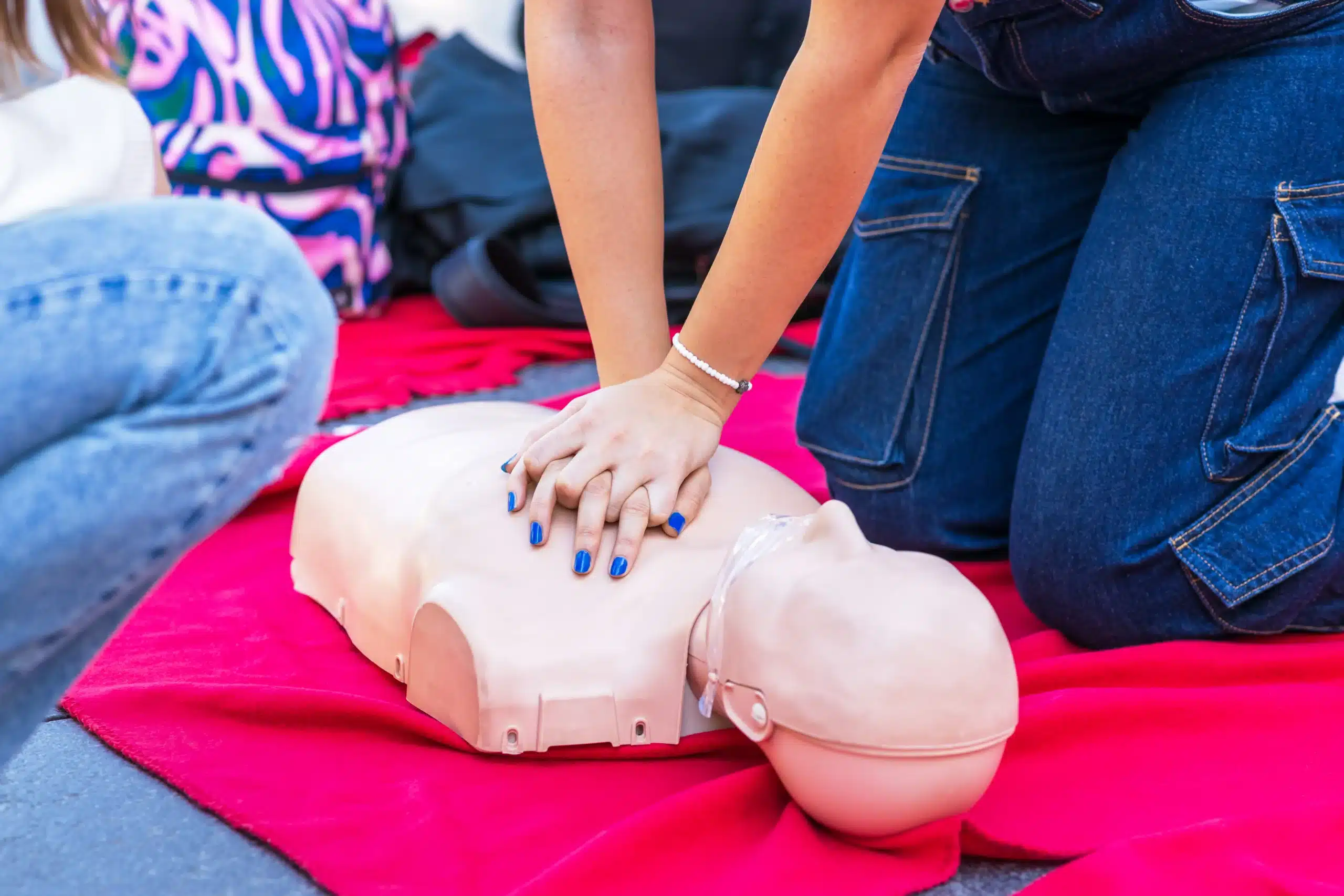Working in healthcare means facing high-pressure situations where every second counts. When a cardiac emergency strikes, your expertise in advanced cardiac life support can be the key to a patient’s survival. This article focuses on finding the best advanced cardiac life support in San Mateo, providing valuable resources and insights for healthcare professionals seeking to enhance their skills. We’ll explore the ins and outs of ACLS certification, from understanding the curriculum and mastering essential skills to navigating the recertification process and staying up-to-date with the latest guidelines.
Key Takeaways
- ACLS training provides advanced life support skills: From airway management to electrical therapies, ACLS builds upon basic life support knowledge to prepare healthcare providers for complex cardiac emergencies. Choose a program that offers hands-on practice and realistic simulations.
- Find an ACLS course that fits your needs: Consider factors like instructor credentials, class size, and available schedules (weekday, evening, weekend, online, or blended learning). Compare providers like Daly City CPR Classes and Bay Area CPR to find the best fit.
- Maintain your ACLS certification through recertification courses: Staying up-to-date with the latest guidelines and refreshing your skills ensures you can confidently respond to cardiac emergencies. Explore additional learning resources to prepare for your recertification.
What is Advanced Cardiac Life Support (ACLS)?
What is ACLS?
Advanced Cardiac Life Support (ACLS) is an advanced, instructor-led classroom course that teaches healthcare professionals how to save lives. It focuses on the immediate assessment and treatment of serious, life-threatening cardiac conditions like heart attacks, strokes, and other cardiovascular emergencies. Building upon the foundational skills of Basic Life Support (BLS), ACLS training from providers like Daly City CPR Classes covers advanced techniques such as airway management, intravenous (IV) medication administration, and electrical therapies like defibrillation. These skills equip healthcare providers to manage complex medical emergencies effectively during the critical moments following a cardiac arrest. The goal is to stabilize the patient and improve their chances of survival and a full recovery.
Who Needs ACLS Certification?
ACLS certification is essential for a wide range of healthcare professionals who might encounter cardiac emergencies in their work. This includes physicians, nurses, paramedics, respiratory therapists, and other healthcare providers working in emergency rooms, intensive care units, and other critical care settings. While these professionals are the most common recipients of ACLS training, anyone working in a healthcare setting where they might need to respond to a cardiac emergency can benefit from this certification. From medical students to experienced practitioners, ACLS training provides the knowledge and skills to confidently manage these high-pressure situations. If you’re a healthcare provider in San Mateo, Daly City, or Millbrae, consider contacting Daly City CPR Classes to learn more.
Find Top ACLS Training in San Mateo
Finding the right Advanced Cardiac Life Support (ACLS) training is crucial for healthcare professionals. Here’s a breakdown of training options in San Mateo:
Daly City CPR Classes
Daly City CPR Classes offers high-quality, affordable ACLS training in San Mateo County. You’ll receive American Heart Association (AHA) certified instruction with hands-on practice and flexible scheduling. They offer a variety of courses to meet different needs, including ACLS certification. Their commitment to excellent customer service and low prices makes them a top choice.
Safety Training Seminars
Safety Training Seminars provides a range of AHA courses, including BLS, ACLS, PALS, and CPR in Daly City. With many providers offering classes seven days a week, finding a time that works for your schedule is easy. This flexibility is especially helpful for busy healthcare professionals. Contact them to learn more about their programs.
American Heart Association Affiliates
Look for ACLS instructors certified by recognized organizations like the American Heart Association. AHA certification ensures your training meets the highest standards and prepares you for real-life emergencies. This is essential for providing effective care in critical situations. You can find a list of AHA Training Centers on their website.
Local Hospitals and Medical Centers
Many local hospitals and medical centers offer ACLS training. These courses often use realistic scenarios, like those you might encounter in a hospital setting. This practical approach enhances the learning experience and prepares you for actual patient care. Check with hospitals in your area, such as Mills-Peninsula Medical Center or Seton Medical Center, for their course offerings.
Get ACLS Certified
Course Duration and Structure
The ACLS Provider course takes about 10–11 hours without breaks or roughly 15 hours total, including breaks and lunch. This timeframe allows for comprehensive instruction and plenty of hands-on practice. Daly City CPR Classes offers various scheduling options to fit your busy life.
Online and In-Person Skills Sessions
We understand finding time for training can be tough. That’s why we offer both online and in-person ACLS courses. Our blended learning option combines online coursework with an in-person skills session, giving you the flexibility to learn at your own pace and get hands-on training. We offer classes in Daly City and can even come to your home or business in San Mateo County or the surrounding areas, including the greater San Francisco Bay Area and Sacramento.
Exams and Skills Assessments
The ACLS course includes both a written exam and skills assessments. The exam covers the core concepts of ACLS, ensuring you have a solid understanding of the material. You’ll also participate in simulated scenarios that mimic real-life emergencies. These simulations allow you to apply your knowledge and practice your skills in a safe and controlled environment.
Certification Renewal
Your ACLS provider certification is valid for two years. When it’s time to renew, Daly City CPR Classes offers recertification courses to help you stay up-to-date with the latest guidelines. For those interested in becoming an ACLS Instructor, you’ll first need a current provider certification. Learn more about the process.
ACLS Course Costs & Value in San Mateo
Getting ACLS certified is an investment in your career and the lives you touch. Understanding the costs involved and exploring available options will help you find the right training program in San Mateo.
Average Price Range
ACLS courses in San Mateo typically cost between $200 and $300, depending on the training center and what’s included. This price usually covers your study materials and certification fees. Daly City CPR Classes offers a low price guarantee for all its courses, including ACLS, ensuring you receive high-quality training at the most competitive price in San Mateo County. You can compare our prices with other providers to see the savings.
Group Discounts and Promotions
If you’re training a team, ask about group discounts. Many providers, including Daly City CPR Classes, offer reduced rates for groups, making training more affordable. This can be a smart option for hospitals, clinics, or any organization with multiple staff members requiring ACLS certification. Contact them directly to discuss your group’s needs and explore available discounts.
Financing and Payment Plans
Financing and payment plans can make managing the cost of ACLS certification easier. While not all providers offer this option, it’s worth inquiring about. Flexible payment options can be especially helpful for individuals covering their own training costs. Reach out to different training centers in San Mateo, like Daly City CPR Classes, to learn about potential financing options or payment plans they may have available. This can help you budget for your ACLS training and get certified without delay.
Meet Your ACLS Instructors
Choosing the right ACLS instructor is crucial for a successful learning experience. It’s important to know what qualities to look for to ensure you receive high-quality training. Here’s what you should consider:
Required Credentials and Experience
Your ACLS instructor should be certified by a recognized organization like the American Heart Association (AHA). This ensures they’ve met rigorous standards and have the necessary knowledge to teach ACLS effectively. Instructors should also hold current provider status in the disciplines they teach, including ACLS, BLS, PALS, and Heartsaver. Beyond certifications, look for instructors with practical experience. Real-world experience translates to more effective teaching and better preparation for your own future scenarios. Learn more about AHA Instructor requirements.
Ongoing Instructor Education
ACLS guidelines and best practices are constantly evolving. Your instructor should participate in continuing education to stay current. This includes completing instructor updates and staying informed about changes in ACLS protocols. Active engagement in ongoing learning demonstrates a commitment to providing students with the most relevant information. Cascade Training offers further insights into the importance of continuing education for ACLS instructors.
Evaluate Training Provider Reputation
Consider the reputation of the training provider. Check online reviews and testimonials from previous students to understand the quality of instruction and overall experience. Yelp can be a valuable resource for finding local reviews. Also, compare pricing information from different providers to ensure you’re getting good value. You can find information on ACLS courses in Daly City. A reputable training provider will prioritize high-quality instruction and student satisfaction.
Find Flexible ACLS Class Schedules
Juggling work, family, and other commitments can make finding time for professional development tough. Thankfully, ACLS training courses in San Mateo understand this and offer various scheduling options to fit your busy life. Let’s explore some of the flexible options available:
Weekday, Evening, and Weekend Classes
Many training centers offer ACLS classes throughout the week, including evenings and weekends. This allows you to choose a schedule that aligns with your availability, whether you’re a healthcare professional working rotating shifts or someone with a traditional 9-to-5 job. Daly City CPR Classes, for example, offers classes daily and can even arrange group training at your location. This takes the hassle out of coordinating training for your entire team.
Online and Blended Learning
For those who prefer a more independent learning style or need more flexibility, online and blended learning options are becoming increasingly popular. Blended learning often combines online coursework with in-person skills sessions. You can complete the online portion at your own pace, then attend a hands-on session to practice and demonstrate your skills. This approach can be particularly helpful for refreshing your knowledge and maintaining your certification. Some programs, like those using the Resuscitation Quality Improvement (RQI) system, may require pre-class video viewing, which can significantly improve your pass rate.
Customized Training Options
If you have a group needing ACLS training or specific scheduling requirements, some providers offer customized training options. This could include on-site training at your workplace or arranging classes on specific dates and times to accommodate your team. In-home training is also an option offered by some providers in San Mateo County and the surrounding areas, bringing the training directly to you. This personalized approach can be incredibly convenient and cost-effective, especially for larger groups.
Your ACLS Course Experience
This section covers what you can expect during your ACLS training. Understanding the curriculum, assessments, and hands-on components will help you feel prepared and confident going into the course.
Curriculum Overview
The ACLS curriculum emphasizes the rapid assessment and treatment of life-threatening cardiac events. You’ll learn algorithms for managing cardiac arrest, stroke, acute coronary syndromes (ACS), and other cardiovascular emergencies. The course covers essential topics such as effective teamwork, high-quality CPR, and post-resuscitation care. A solid understanding of these core concepts is crucial for providing timely and appropriate interventions. You can explore more about ACLS Certification to further understand the course content.
Skills Assessment Components
Throughout the ACLS course, instructors will assess your skills in several key areas. These assessments typically include airway management techniques, such as intubation and bag-mask ventilation. You’ll also be evaluated on your ability to interpret cardiac rhythms and administer medications accurately. Effective teamwork and communication are also critical components of the skills assessment, mirroring their importance in real-world emergencies. Reviewing ACLS skills evaluations beforehand can boost your confidence and competence.
Hands-on Practice and Simulations
ACLS training isn’t just about lectures and textbooks. The course incorporates realistic simulations and case studies to give you practical experience managing various emergency scenarios. These hands-on sessions allow you to apply your knowledge and skills in a safe and controlled environment. Working through ACLS training scenarios helps build your critical thinking abilities and prepares you for the challenges of real-world emergencies. You’ll gain valuable experience leading a team, making quick decisions, and adapting to dynamic situations.
Prepare for ACLS Training
Getting ready for ACLS training involves understanding the prerequisites, gathering your study materials, and preparing for the challenges you might face. Thorough preparation will make your learning experience smoother and more effective.
Prerequisites and Study Materials
Before you begin ACLS training, you’ll need a current American Heart Association (AHA) Basic Life Support (BLS) Provider card. This foundational knowledge is essential for building advanced life support skills. AHA guidelines require instructors to hold current provider status in the discipline they teach, ensuring your training comes from a qualified professional. Look for training centers with certified instructors, like those at Daly City CPR Classes, to receive high-quality instruction. Once you’ve confirmed your eligibility, gather your required study materials. This typically includes the ACLS Provider Manual and any supplementary resources recommended by your training center.
Master ACLS Skills
ACLS training equips you with the skills to manage complex cardiovascular emergencies. You’ll learn to administer medications like epinephrine, amiodarone, and vasopressin, crucial for treating cardiac arrest and arrhythmias. Understanding how to recognize and manage cardiac arrest using established algorithms and advanced life support interventions is also a key component of the course. Hands-on practice and simulations are vital for mastering these skills, so choose a program that emphasizes practical application. Daly City CPR Classes offers courses designed to build these essential skills.
Overcome Common Challenges
ACLS training presents challenges that require quick thinking and adaptability. Healthcare professionals often face situations demanding immediate action and effective problem-solving. Communication breakdowns within the team can hinder effective care, so developing clear communication strategies is essential. Recognizing common mistakes and developing strategies to avoid them will significantly improve patient outcomes during real-life cardiac emergencies. Practice scenarios and open discussions during your training can help you prepare for these challenges and build confidence in your abilities.
Choose the Right ACLS Provider
Finding the right Advanced Cardiac Life Support (ACLS) provider is crucial for receiving high-quality training that prepares you for real-world emergencies. Take your time and research different options to make the best decision for your needs.
Factors to Consider
First, confirm your instructors’ credentials. Look for instructors certified by recognized organizations like the American Heart Association (AHA). Whether you’re signing up for ACLS certification or other advanced courses, verifying instructor qualifications is essential. You can often find this information on the training provider’s website, like Daly City CPR Classes, which highlights its AHA-certified instructors. Also, consider the class size. Smaller classes often allow for more personalized instruction and feedback, which can be beneficial for hands-on skills practice.
Compare Course Offerings
Different providers have various course formats, including in-person and online ACLS courses, to fit your schedule and learning preferences. Bay Area CPR offers a good example of this flexibility. Review what each course includes, such as manuals, materials, and any continuing education opportunities. Daly City CPR Classes offers a range of courses, from basic life support to specialized certifications. Understanding these offerings can help you choose the best fit for your current skills and career goals. Pricing can also vary, so compare costs and look for potential discounts.
Read Reviews and Testimonials
Before committing to a course, see what other students are saying. Customer reviews and testimonials offer valuable insights into the quality of training. In-Home CPR demonstrates the value of positive feedback, showcasing testimonials that praise their instructors. You can also find reviews on sites like Yelp to get a broader perspective on different providers in your area, like Positive Heart CPR, Compressions CPR, and Safety Training Seminars. Reading these reviews can give you a better sense of the overall learning experience.
Recertify Your ACLS Skills
Keeping your Advanced Cardiac Life Support (ACLS) skills sharp is crucial for any healthcare provider. Regular recertification ensures you’re prepared to handle cardiac emergencies effectively. This section covers what you need to know about maintaining your ACLS certification.
Recertification Requirements
ACLS certification is typically valid for two years. After this period, healthcare professionals must complete an ACLS recertification course to maintain their credentials. Don’t let your certification lapse—stay ahead of the curve and ensure your skills are current. Check with your certifying organization or employer for specific requirements.
Stay Current with ACLS Guidelines
The medical field is constantly evolving, and ACLS guidelines are no exception. Staying updated with the latest ACLS guidelines from the American Heart Association is essential for providing effective emergency care. Regularly reviewing updated materials and seeking continuing education will keep your knowledge and skills refined.
Find Additional Learning Resources
Want to brush up on your skills before your recertification? Plenty of resources are available to help you prepare. Consider online ACLS prep courses for additional practice and knowledge. The American Heart Association website also offers valuable resources and practice materials. Reviewing these materials will boost your confidence and ensure you’re ready for your recertification.
Related Articles
- ACLS Certification in Daly City: Your Complete Guide – Daly City CPR Classes
- American Heart Association (AHA) Classes in Millbrae – Daly City CPR Classes
- AHA ACLS Classes in Daly City, CA – Daly City CPR Classes
- Low-Cost CPR Certification in Daly City: Your Guide – Daly City CPR Classes
- CPR, BLS, ACLS, PALS, and First-aid Courses in Daly City, CA
Frequently Asked Questions
Why is ACLS certification important? It’s a vital credential for healthcare professionals, ensuring they possess the advanced skills and knowledge to manage life-threatening cardiac emergencies effectively. It signifies a higher level of competence in responding to critical situations, ultimately improving patient outcomes.
What does ACLS training cover? ACLS courses build upon basic life support (BLS) skills, covering advanced techniques like airway management, rhythm recognition, electrical therapies (defibrillation), and intravenous medication administration. The curriculum emphasizes a team-based approach to managing cardiac arrest and other cardiovascular emergencies.
How can I find an ACLS course near me? Several options exist for finding ACLS training. You can search online for certified training centers in your area, inquire at local hospitals and medical centers, or contact organizations like Daly City CPR Classes directly. Make sure to choose a provider with certified instructors and a reputable training program.
How much does ACLS certification cost, and are payment options available? The cost of ACLS certification varies depending on the training provider and location but typically falls between $200 and $300. Some providers offer group discounts or payment plans, so it’s always worth inquiring about these options. Daly City CPR Classes, for example, offers a low-price guarantee.
How often do I need to recertify my ACLS skills? ACLS certification is generally valid for two years. To maintain your credentials and stay up-to-date with the latest guidelines, you’ll need to complete a recertification course before your current certification expires. Many training centers offer refresher courses to help you prepare.


